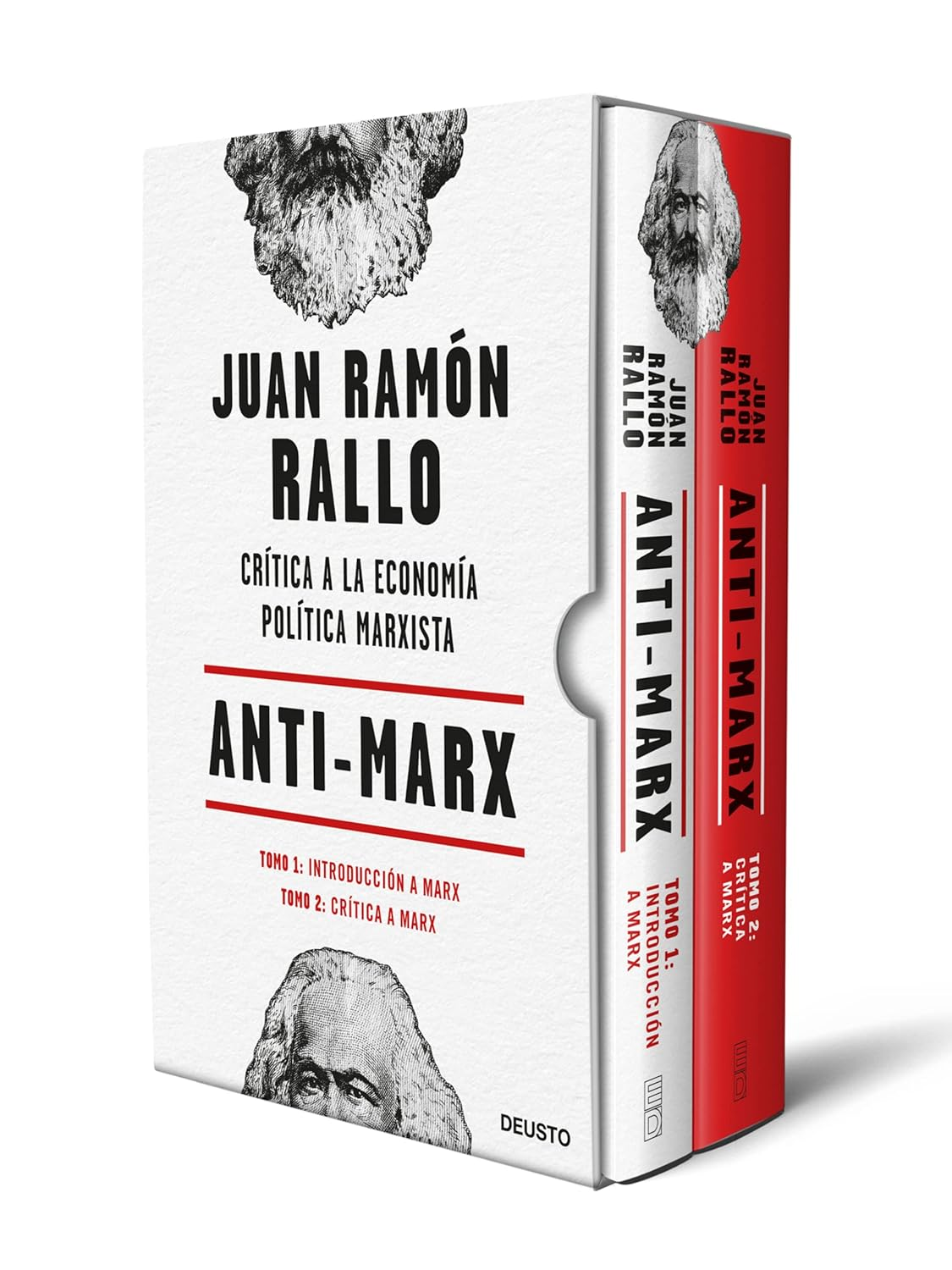Anti-Marx
-- This summary is a personal interpretation for educational purposes. All rights belong to and his publishers.--
The purpose of this publication is:
- To promote financial literacy in an altruistic way
- To reach the population with fewer resources
- To encourage the purchase of the original book. Amazon - Anti-Marx (only Spain)
- This is a content generated by the most common AIs, from the content they have in their databases. Such content can be accessed by any user, I have only compiled and exposed such information here. It is NOT my own material -
- The division and structure may not coincide with the original, and may have been adapted for its comprehension and dynamism. -
📘 Introduction
🔍 Dismantling the Foundations of Marxism
In Anti-Marx, Juan Ramón Rallo launches a systematic and in-depth critique of Marxist economic theory. His goal is not to ridicule it or dismiss it with ideological superficiality, but to refute it using conceptual, historical, and logical arguments.
According to Rallo, Marxism and liberalism do not simply differ in values, but offer fundamentally opposed understandings of how economies work — of capital, labor, value, and historical evolution.
📜 "Marxism fails because it starts with a flawed diagnosis of how value is created, how capital operates, and how economies evolve."
The book is structured as a rational dismantling of the core pillars of Karl Marx’s thought: from the labor theory of value to his predictions about capitalism's self-destruction. Rallo does not limit himself to liberal counterarguments — he also draws on empirical evidence, modern economic theory, and Marx's own internal inconsistencies.
Anti-Marx is not just a book against Marx — it is also a defense of free market economics as a moral, functional, and evolutionary system.
📖 1 — “The Labor Theory of Value”
⚙️ What Determines the Value of Goods?
One of the foundational claims of Marxist economics is the labor theory of value: the idea that a product’s value is determined by the amount of socially necessary labor required to produce it.
📜 "Labor creates value," Marx declared.
Rallo challenges this claim by asserting that economic value does not derive from labor but from the subjective utility that consumers assign to goods. In short:
-
A good does not become more valuable just because more effort was put into it — especially if no one wants it.
-
Goods do not have “intrinsic” value; rather, value is relational and subjective.
-
Marginalist economic theory demonstrates that scarcity and utility determine value, not labor input.
Rallo also points out inconsistencies in Marx’s own writings, where he occasionally acknowledges the influence of supply and demand on price — while still clinging to labor as the ultimate source of value.
🗝️ Key Takeaways:
-
Value is not objective or labor-based — it is subjective.
-
Labor only creates value when it meets actual needs.
-
The market does not exploit workers — it pays them for their marginal contribution.
🗣️ Highlighted phrase:
"Labor is not the source of value — value is the reason labor is demanded."
📖 2 — “Surplus Value and Exploitation”
💰 Is the Capitalist Stealing from the Worker?
One of Marx’s most well-known theories is the concept of surplus value: he claimed that the capitalist appropriates the “unpaid value” created by the worker, paying only a wage and keeping the rest — the surplus — as profit.
📜 "All capitalist profit is theft from labor," says Marxism.
Rallo rebuts this idea from several angles:
-
There is no theft if there is consent: if the worker freely agrees to the wage, there is no exploitation.
-
Capital also adds value: without machines, tools, infrastructure, and entrepreneurial direction, labor would be far less productive.
-
Surplus value is not the result of coercion, but of productive cooperation among all factors of production.
Moreover, Rallo highlights that the capitalist bears risk, advancing resources without any guarantee of return. Therefore, profit is not theft — it is a reward for service and for bearing uncertainty.
🗝️ Key Takeaways:
-
There is no exploitation in a voluntary contract.
-
Capital and entrepreneurship also create value.
-
Profit is not leftover value — it is payment for coordinating scarce resources under uncertainty.
🗣️ Highlighted phrase:
"Capital doesn’t exploit labor — it empowers it."

